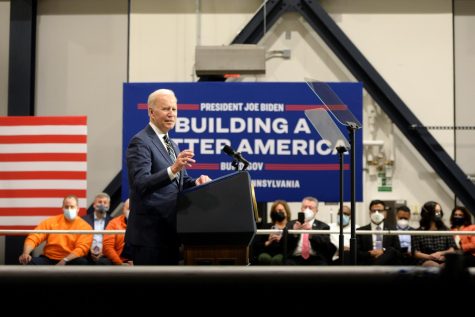Editorial: Expanding pool of state-related universities would prove detrimental
March 2, 2014
New legislation proposed by two state senators could give state-owned universities the choice to secede from the state system and become part of the state-related membership.
After Friday’s Board of Trustees meeting, the Pittsburgh Post-Gazette reported that Chancellor Mark Nordenberg said “a lot of thought” should go toward assessing whether the state-related system should expand to include state-owned institutions.
Four institutions — Pitt, Penn State, Temple and Lincoln — have held state-related status for decades and are the only institutions considered state-related. As such, while they receive state funding, they control their own tuition, fees and supplementary costs. The four schools have distinct, yet complementing, characteristics through their historic ties and research endeavors. It doesn’t seem like expanding that network would provide any benefit for either party.
Expanding the network would jeopardize the low tuition costs for state-owned schools making the switch. Furthermore, the amount of funding state-related institutions receive — which has already taken cuts — would also decrease.
This year, Pitt received a state appropriation of $144.3 million after recent state cuts — the lowest level of funding the University has received since 1995. Gov. Tom Corbett’s budget allots $503.5 million for the four state-related institutions and appropriates $412.8 million to the 14 state-owned schools.
While the difference in funding seems confusing, state-owned schools are significantly smaller with smaller budgets as well. If some schools switch over to the state-related system, existing members will see bigger cuts to their budget.
West Chester University, a state-owned school of 15,000 located in suburban Philadelphia, is a potential candidate to change statuses. State Senators Andy Dinniman and Robert Tomlinson, both planning to sponsor the legislation, noted that allowing West Chester to become a state-related university would give it the freedom to react better to shifts in academic demand, because the university would be able to appropriate its budget more freely.
But that doesn’t seem to be the case. Although West Chester is on the rise, becoming a state-related school would affect the amount of funding it receives. A school that is smaller relative to institutions such as Penn State, Pitt and Temple is dependent on state funding to provide an affordable education for its student body. Threatening that would have dangerous implications for the institution’s enrollment and mission of providing an affordable source of higher education for Pennsylvania students. Moreover, state appropriations heavily influence the tuition and rates and changing that could inhibit in-state students from enrolling to obtain an affordable education.
While it is important for schools to have the ability to adjust quickly to academic demands and changing perspectives, the state-related system has grown to the common interests between the four schools. Enhanced research, among other strengths, is what has grouped these universities together. Adding to the current team, apart from the financial concerns, doesn’t seem to be of much benefit otherwise.
Overall, this legislation is pointing in the wrong direction.







